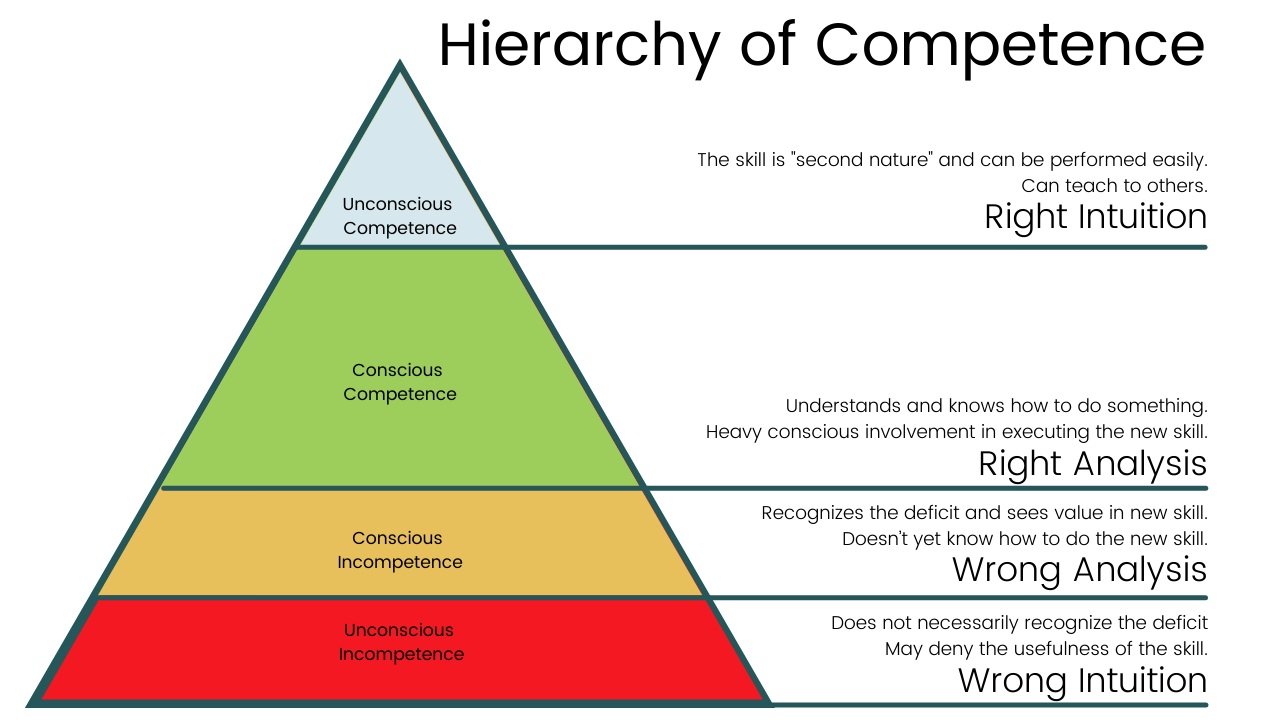How often have you told yourself you can’t do something because of who you are? Have you said “I’m just not an organized person”? Or “I’m so bad at X”? Or “maybe I’m just worse than other people at X”?
If I’ve learned anything in the wake of Carol Dweck’s amazing book, “Mindset”, it’s that we are all capable of growth. Even around skills you might have thought were fixed, or part of your personality. (And frankly, I learned a lot more than that from that book.) When I first read Mindset I was particularly struck by the example of a group of people who had learned to draw, and draw well. The first photos were of their first drawings and they were, lets just say, not great. Then, representing the passing of some period of consistent effort we are shown another set of images. This time, the drawings are those from true “artists”. But here’s the thing: they were the same people, and the before and after weren’t that far apart. The people had simply been taught some new skills, and then practiced. I’m sure it wasn’t easy, but it wasn’t impossible. It’s not that some people are true artists and others never can be. It’s about applying your efforts.
On that note, today I want to walk you through one of my favorite models to help you understand the process of acquiring new skills. It’s called “The Hierarchy of Competence” or sometimes “the 4 stages of Competence”. You can see the graphic above to help you visualize it. And I want to walk you through the stages using a skill that you most definitely already have down pat: reading
So, let’s start at the bottom in the red zone: Unconscious Incompetence.
This is when we don’t know there’s a skill we’re lacking. Or we don’t see any value in a particular skill or set of skills. With reading, imagine you’re a baby or toddler; you don’t even know reading is “a thing”. Sure, you see the adults in your life pointing at words and showing you pictures in books, but you haven’t quite put it together that they are doing a thing called reading that has broad applicability to life. You’re blissfully ignorant of the concept of reading. With the skill of time management, I almost never meet people at this stage, because they wouldn’t be reaching out to me in the first place. Either they’re not even clear that they are lacking in the time management department, or they don’t see the value in improved time management.
Now, let’s move up into the yellow zone: Conscious Incompetence.
This is when you know you’re not where you want to be with a particular skills, but you’re not sure how to get there on your own. In our example of learning to read, imagine you’re a preschooler and maybe you’ve got an older sibling. You see others reading. You understand reading is something others can do. But you can’t do it and you’re not even sure where to start. (This is where many people reach out to me around time management. They are seeking guidance around something they desperately want, and/or have had trouble making happen on their own.)
Let’s move up a rung to the green zone: Conscious Competence.
This is the stage where you know what to do, and you know how to do it. But it still takes considerable effort to make it happen. Sometimes, we refer to this stage as the “knowing-doing gap”. And it can be frustrating to be here. But when you’re here, you’re oh-so-close to the top.
Let’s go back to our example of reading. Now imagine you’re in kindergarten and you’ve learned that letters make sounds and that when you string those sounds together you get words. Heck, you even know which sounds each of the letters make. But it still might be a year or two of consistent effort before you’re a fluent reader. The image that always comes to my mind when I think about this Conscious Competence stage is when one of my kids was little and proudly pointed at a Lego box and said “L E G O; blocks!”
When you’re learning a new skill, you might be in the green zone for awhile because the green zone is the learning zone and the habit building zone all at once; and habits take a long time to build before they are effortless. When I work with people, we spend a lot of time in this zone.
Now finally, let’s look at the apex of this triangle: Unconscious Competence.
This is when we have built the habits and we perform the skills as second nature. I guarantee that with the skill of reading, you’re in the Unconsious Competence zone. You’re not thinking hard about how to read these words on your screen. You’re just reading them. You’re focused on the content of words rather than functionally reading them.
And here’s what I want you to know.
That blue zone of unconscious competence? It’s a hard won reward for your hard work.
You might not remember the learning to read process. But you sure do benefit from that hard work you put in earlier in your life. You benefit every single day. And when you were in kindergarten, you might have had days, or even weeks, where you were very discouraged; where the learning wasn’t coming fast enough, where you were stumbling over your words and scared when the teacher called your name. You might have thought you’d NEVER be able to learn to read. But you carried on. And eventually you got there.
Reading, time management, any other skill you can think of that you’d like to learn, like to be better at; these are all skills you can learn.
But to arrive at the zone of unconscious competence, you have to put in the work. You put one foot in front of the other and you keep on keeping on. And eventually, you look back and forget that you ever struggled in the first place.
If you are not able to do something as effortlessly as you want, there’s nothing wrong with you. You’re on the path to Unconscious Competence, so long as you keep working at it, and reach out for help when you need it.


